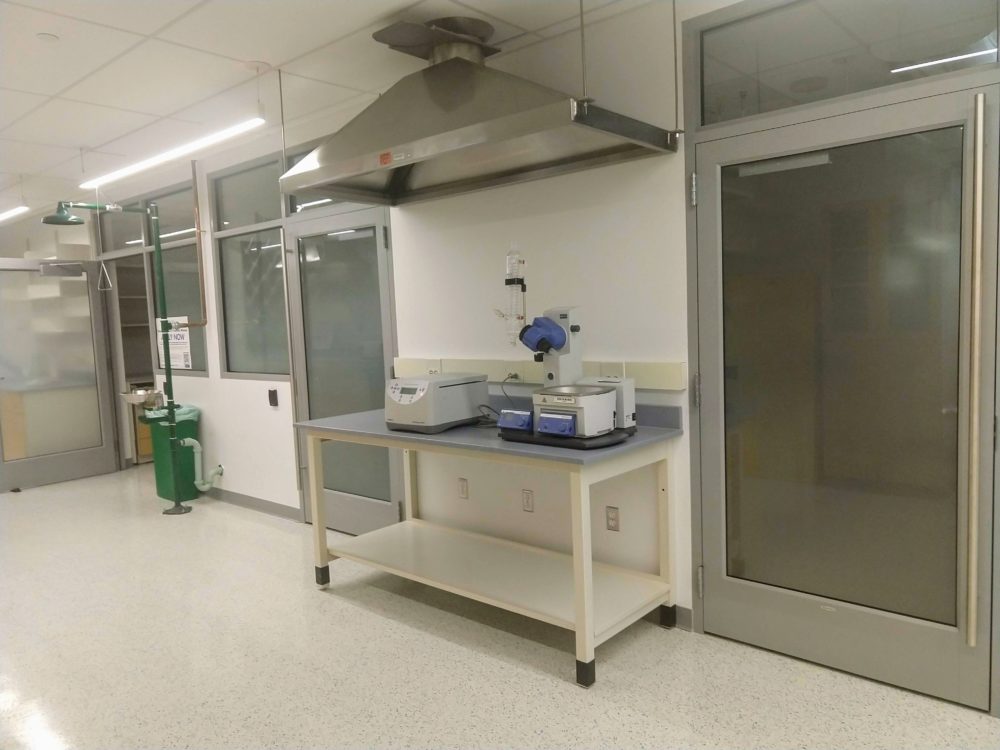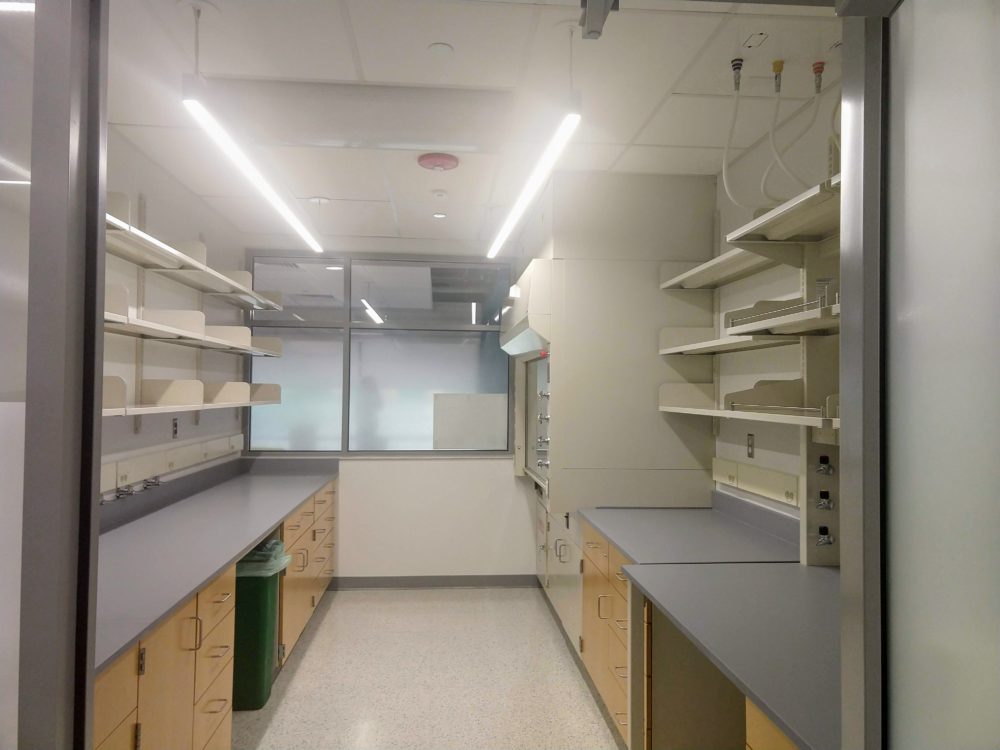It’s never simple and rarely inexpensive to launch a startup, but when your startup is science-based and requires using a wet lab for research and development, it can be exponentially more expensive in early stages than other startups.
And these are often startups working on technology that are potentially world changing and life saving, whether it’s a polymer with applications for sustainability or new treatments for disease. It’s why Delaware’s EDGE Grant awards a higher amount to science startups — the costs, outside of a university setting, can be astronomical.
The newly renovated Delaware Innovation Space (DIS) in Wilmington, a science-focused incubator on DuPont’s Experimental Station campus in partnership with the University of Delaware and the State of Delaware, is all about supporting STEM startups.
It offers a competitive $50,000 FastPass award annually, and in March, it launched First Fund, which aims to give young startups in the areas of healthcare, industrial biotechnology, advanced materials, nutrition, renewable energy and chemical ingredients up to $75,000 in funding.
Now, there’s another startup-friendly offering at DIS: Lab Pods, 15-by-10-foot turnkey labs with full access to the facilities (including about half a million dollars of hardware), Wi-Fi, utilities and business support — all for $2,500 per month.

Mike Rinkunas, director of acceleration and client development at DIS, is the support person who helps scientists become businesspeople.
“What I do is I basically strap a giant ACME rocket to the businesses and either they take off into orbit or they explode and pick up the pieces,” he said in an interview with Technical.ly.
“While they’re working on everything, I keep kicking the business model, the fundraising,” said Rinkunas. “Scientists — a lot of people in general — like to check the box: ‘Oh, I reached out to an investor,’ or ‘I’ll just do some fundraising.’ No. Fundraising and seeking money, whether it’s dilutive or non-dilutive, is a full time job. A lot of first-time founders don’t understand the level of commitment. They just think, ‘Oh, I’ll call an investor and it happens.’ They don’t realize it’s a nine- to 12-month process.”
“So I help teach people how to talk to investors,” he continued. “A lot of scientists and engineers, they lead with the technology, they don’t talk about the business. Anyone who’s writing a check wants to know the business. And so changing science to business is what I do.”
University of Delaware-based startup W7Energy won the FastPass Award last year, and has been working at DIS since January. (The company has also just been announced as one of five $100,000 winners of the EDGE Grant, along with fellow DIS startup Napigen.)
“When they came in in January were at zero full-time employees, and today they’re now four full-time people and just announced they’re getting a [$4.4 million] grant” from the Department of Energy’s Advanced Research Projects Agency-Energy Program, Rinkunas said. “They’re going to go to six [team members]. And they’ve quadruped their space here. So you’re talking zero to six people in nine months.”
The year-old company, which is working to commercialize a new class of polymers that can be applied to making zero emission fuel cell vehicles and producing clean hydrogen, was founded by UD professor Yushan Yan.
“We have four engineers, and with the grant, and we’ll be growing to the next stage,” said Yan. “I’ll probably add another three or four people.”
Though it’s growing, W7Energy will remain at DIS for the foreseeable future: One of the benefits of the DIS model is that it allows companies to grow within the facility. “I think we’ll be here for some time,” said Yan, “but if I have another round of money it may be different.”
Science startups awarded a FastPass or First Fund award can choose to apply it as equity toward a Lab Pod.
“So with First Fund, at $2,500 that’s basically 30 months here,” said Rinkunas. “You can use it to pay for [a Lab Pod], or, if you want to, go to one of the larger labs — you can do a half lab, a full lab, and then you ‘pull a Prelude‘ which is half a floor, to an Incyte [now located at Augustine Cut Off in Wilmington], which had two floors.”
Cancer therapy startup Prelude Therapeutics, for the record, had Q2’s largest venture capital raise in the Greater Philadelphia region, at $60 million.
“We have people who are looking to raise a $30 million round in the next couple months,” said Rinkunas. “And I’m going to help them do that.”
There are still a few pods available. Inquire here, or apply for the First Fund program.







